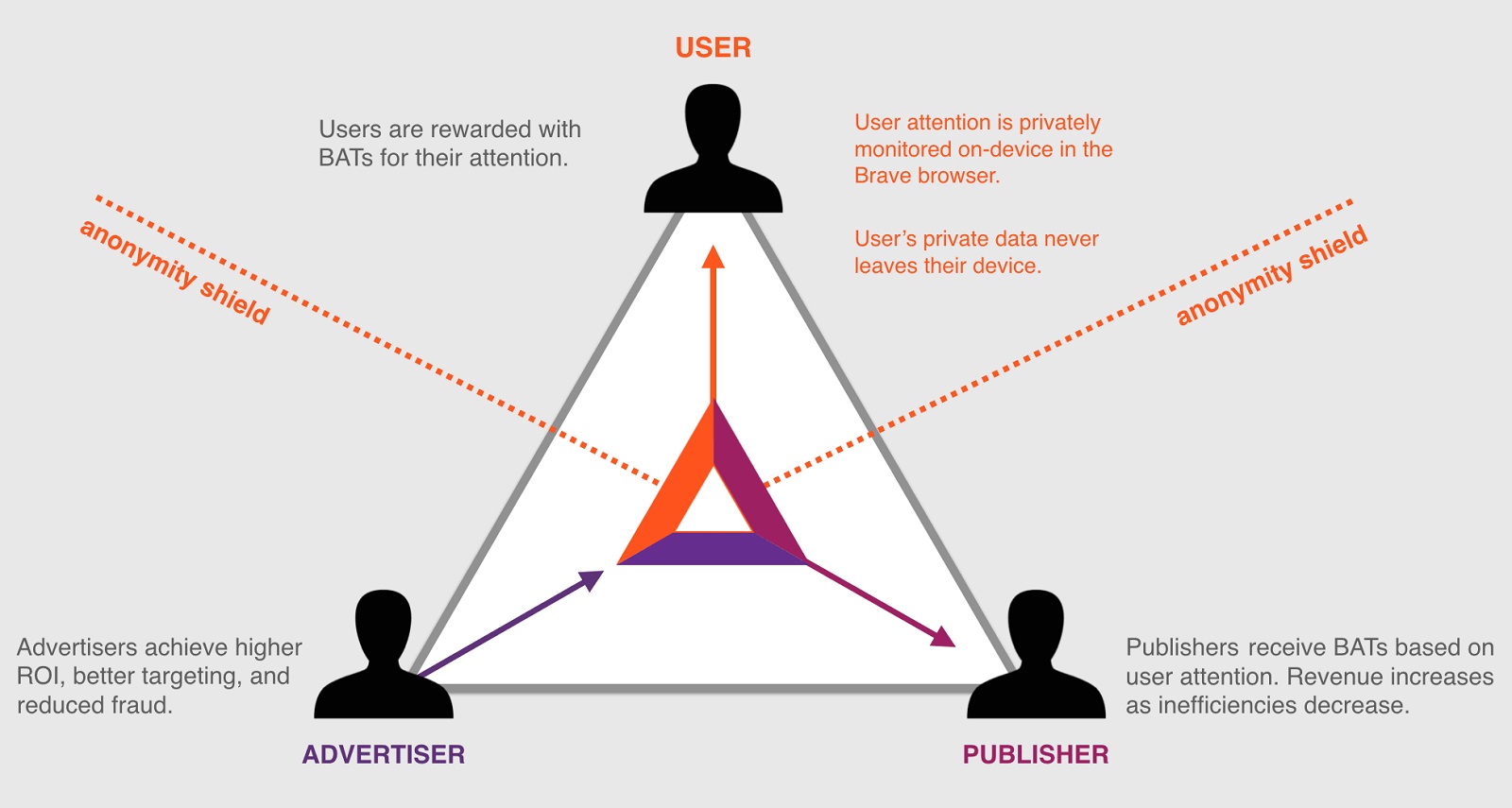Online advertising is broken, and broken in a way that’s not just inefficient, but invasive of privacy and corrosive to the quality of the whole web experience. Ads dramatically increase data usage and load times—an investigation from the The New York Times in 2015 found that when loading the top 50 news sites more than half of all data transmitted came from ads—and the covert installation of ad trackers which record users’ browsing preference across websites is an “alarmingly widespread” practice according to the Electronic Frontier Foundation.
These aspects may be widely disliked by content consumers, but we’re also in something of a Faustian bargain with online advertising: Ad money is the economic driver that has enabled such a proliferation of online content at little or no cost to the audience, and that free content has been a good enough reason to tolerate ads so far.
Videos by VICE
In light of this, re-modelling online advertising could be an an all-round winner, better for marketers, publishers and the consumers alike. And this is the task that Brendan Eich, creator of JavaScript and co-founder of Mozilla, has set for himself, first with the ad blocking Brave browser and now with the launch of the Basic Attention Token (BAT), a digital currency token which will integrate with the Brave platform to directly monetize users’ attention, and help advertisers serve them fewer but more targeted ads.
According to the BAT whitepaper, the need for the token is that user attention hasn’t yet been priced with an efficient market system: Users visit publishers’ sites because they value the information provided, but advertisers pay publishers for the indirect attention given to ads which appear alongside the content and may or may not be seen. Because the BAT integrates with a browser, a value for advertising slots can be calculated based on precise metrics for the time spent on the page, ad size in proportion to the content, and a detailed profile of the user’s tastes—potentially sensitive information, but which Brave says is anonymized and never leaves the device.

Image: Brave
Where the Brave browser made it easy for users to block all ads by default, the addition of the BAT will allow users to opt in to seeing ads, while providing more transparency over how the revenue is allocated. (For example, an existing system in Brave lets users distribute bitcoin payments to the sites they had visited in proportion to time spent on each.)
“In the long run, many specialized exchanges of data and payments will be tokenized via blockchains,” said Brendan Eich in an email to Motherboard. “The BAT is about more than ads, too. We want micropayments and donations via the BAT as prototyped in Brave today with bitcoin. We foresee giftwrapping, with appropriate BAT micropayment cryptographically embedded in hyperlinks to paywalled content (e.g., I am an ft.com subscriber and read a piece I’d like to share with a friend who does not subscribe).”
As of today, Brave is raising money through a token sale of the BAT—a common way of crowdfunding cryptocurrency projects—with the full operational launch of the platform on both mobile and desktop to come at a still undisclosed date. Investors will be hoping that if the system takes off, the token will appreciate in value beyond the initial sale rate of 6400 BAT to 1 unit of Ethereum’s Ether tokens ($210 at current price), and according to Eich, Brave will be using the money raised to make new hires and incentivize growth by providing new users with a small stake in the token.
Judged by the current state of the field, an ad technology that requires a specific browser and an opt-in process from the user is by no means guaranteed to appeal to advertisers and publishers, and responses to Brave so far have shown that there is a degree of uncertainty from the industry in how to respond. But Eich’s credentials with building and promoting user-friendly web technology are impressive, and there’s a sense that with Brave and the BAT he is playing a long game based on a vision of a better era of online ads rather than looking for a quick win.
Update: According to CoinDesk the entire supply of tokens sold out in 30 seconds.




